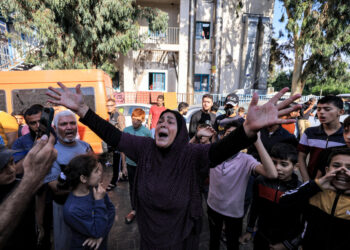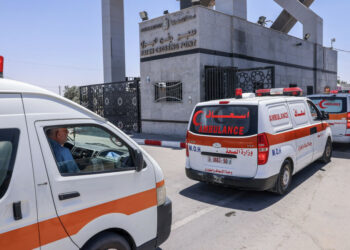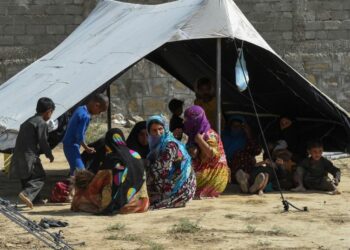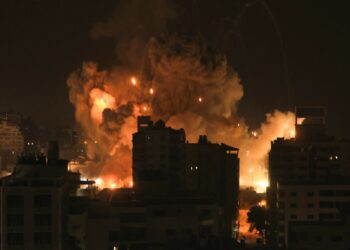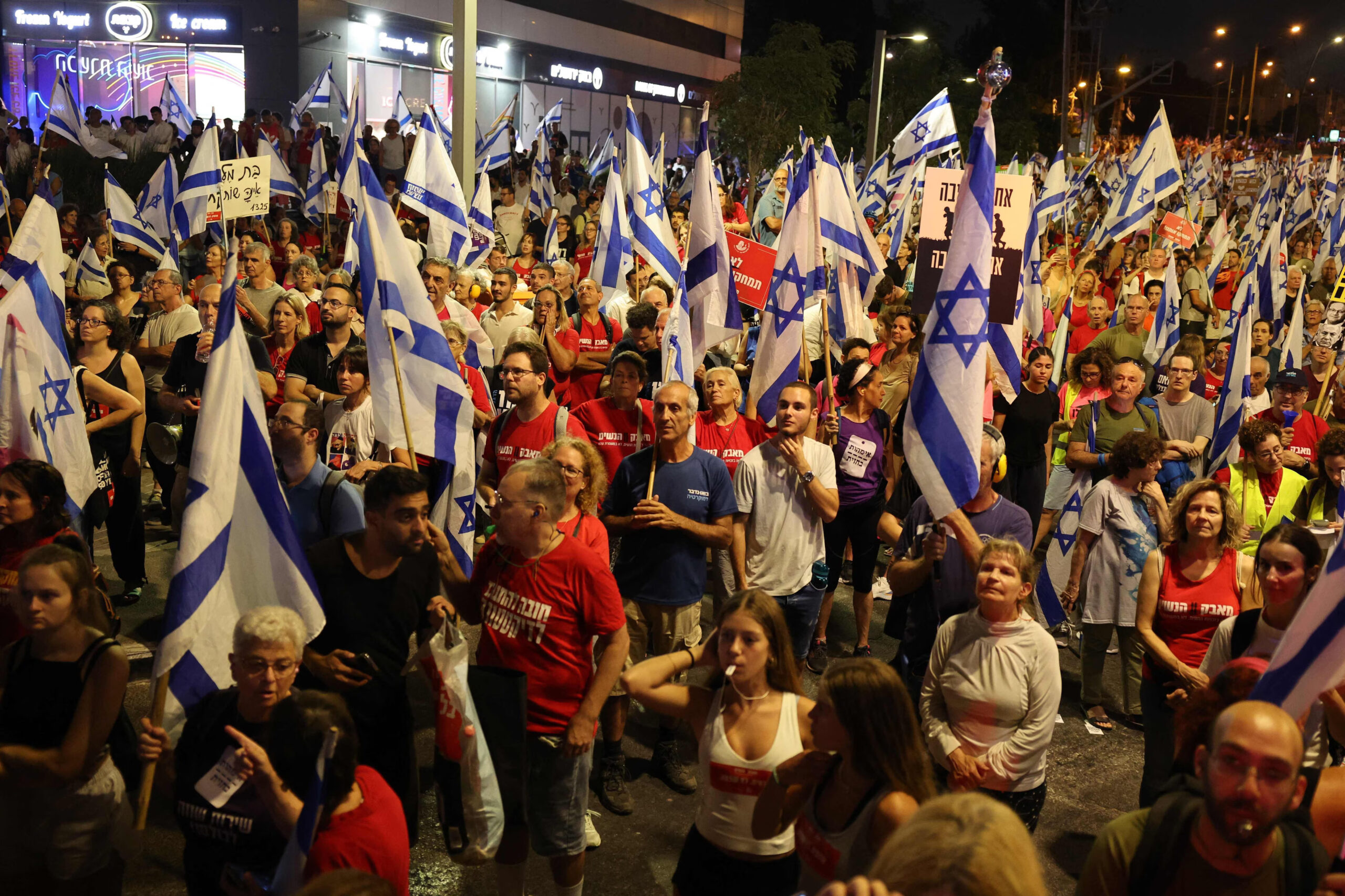Over the past few years, there has been an alarming upsurge in right-wing extremist terrorism. Whether it was the 2017 attack on a London mosque, the 2018 attack on a Pittsburgh synagogue, or more recently the tragedy that befell Muslim worshippers in Christchurch, the one common denominator is that they were all carried out by individuals espousing an ultra-nationalist ideology.
Like other forms of terrorism, it seems nowhere is immune, and the West Bank in the Occupied Palestinian Territories is no exception.
Earlier this year, the Chief of the General Staff of the Israeli Defence Force, Lt. Gen. Gadi Eisenkott, issued a statement warning of an alarming increase in what he termed “nationalistic crimes” perpetrated by Jewish extremist settler groups in the West Bank against Palestinians.
Deep concern about violent attack on Palestinians in #WestBank village of Al Mughayyir on 26 Jan. & ISF's failure to protect the Palestinian population. It took place in the context of a surge in settler violence, reaching its highest levels since 2015 👉 https://t.co/uy5u32VSCO pic.twitter.com/Gan0LhO9z2
— UN Human Rights (@UNHumanRights) January 29, 2019
Ultra-nationalist Jewish settlers committed 482 attacks against Palestinians in the West Bank last year, according to the Israeli news agency Haaretz. This is an increase of nearly 300 percent from the previous year.
These crimes consist of actions such as writing offensive graffiti, throwing rocks at cars and houses, and setting olive groves and crops alight. At the more extreme end of the spectrum, settler crimes consist of the use of Molotov cocktails and semi-automatic weapons against Palestinians.
Trying to understand the motivating factors behind these attacks and their upsurge is problematic. Like everything associated with the Palestinian/Israeli conflict, countless interlocking narratives contribute to its volatility and complexity.
History of West Bank
As with all acts of terrorism, context is key. Consequently, it is important to understand the history of the West Bank to provide a touchstone in understanding the foundation of settler violence.
The West Bank is a creation of the 1947-48 War that saw the establishment of the Israeli state. Nineteen years later, in 1967, Israel occupied the West Bank, Gaza, and East Jerusalem during the Six-Day War. One of the by-products of that war was the reawakening of Jewish ultra-nationalism.
For the first time in centuries, an Israeli state that included Judea and Samaria, as the West Bank is known to Israelis, resembled Eretz-Israel, or “the Land of Israel,” which God had promised to Abraham, Isaac, and Jacob. Consequently, many Israelis view Judea and Samaria as indivisible parts of Israel.
Jewish Ultra-Nationalism and Settlements
The reawakening of Jewish ultra-nationalism led to a messianic belief in the legitimacy of the Israeli state, and in its moral, political, social, and military superiority over Palestinians. One of the manifestations of this belief was the creation of several ultra-nationalist movements like Gush Emunim (translated as “Bloc of the Faithful”).
The group believes that Jews possess the immanent right to all of Eretz-Israel to the exclusion of all others. Under the tutelage of Orthodox Rabbi Abraham Isaac Kook, the group pronounced that it was a religious obligation for Israel to retain sovereignty over all of Eretz-Israel. When Menachem Begin became Prime Minister in 1977, this ideology manifested itself in the form of settlement construction in the West Bank.
The settlements are intended to create “facts on the ground” that would make the formation of any Palestinian state including the West Bank highly problematic. In 2017, the Israeli human rights group B’tselem noted that there were 131 government-sanctioned settlements in the West Bank containing approximately 622,670 Israeli settlers, with a further 209,270 settlers located in settlements around East Jerusalem.
Frustration with Government
Despite ongoing political support and government subsidies, more radical sections of the settler community are getting increasingly frustrated with the authorities, irrespective of which party holds power.

This frustration emanates from the concern that the political establishment, even the conservative portion, is unwilling to urge Jewish settlement of all Eretz-Israel. As evidence of this unwillingness, the ultra-nationalists cite Israel’s withdrawal from Gaza in 2005.
For the ultra-nationalists this is not only evidence of the government’s duplicity on this issue, it is evidence of the failure of the traditional settler leadership to defend this key tenet of Jewish nationalism and prevent the ceding of Jewish sovereignty of any portion of Eretz-Israel.
Hilltop Youth
The political sensitivity surrounding Jewish sovereignty in the West Bank has created a permissive environment that has spawned the establishment of groups like the Hilltop Youth. The group is a loose collection of Israelis aged between 16 and 25 years, known for their militant religious nationalism.
The Hilltop Youth are openly hostile to both the government and the traditional settler leadership, believing the latter is complicit in the government’s failings. Unlike the traditional settler movement, the Hilltop Youth are willing to challenge the government’s authority and conduct vigilante attacks against Palestinians. These attacks are designed to intimidate and terrorize Palestinians in the West Bank deliberately.
The Hilltop Youth refer to their actions as “Price-Tag” attacks as they are intended to exact a price from Palestinians for occupying Jewish land. The group hopes that these attacks create an environment that is so hostile for Palestinians that they decide to leave their properties in the West Bank in the search for peace.
The group also establishes outposts in areas of the West Bank densely populated by Palestinians. In the political narrative of the Hilltop Youth, these outposts are beacons of Jewish sovereignty over the West Bank. B’tselem estimates that there are around 110 illegal outposts scattered throughout the West Bank.
While the outposts are notionally illegal, many were established with the government’s tacit or outright support. Additionally, members of the Knesset, particularly those from religious-nationalist parties, often support their occupants publicly, making it politically unpalatable for the government to authorize the Israel police and Israeli Defence Force to expel them.
How to Resolve Violence in West Bank?
Despite warnings from people like Lt. Gen Eisenkott, politicians, even conservative ones, vacillate over how to resolve the violence. Politicians worry that any concerted effort to reign in the Hilltop Youth and other ultra-nationalists over such a sensitive issue could fracture Israeli society. This has ramifications for the peace process with the Palestinians and what could happen if an Israeli government agreed to cede sovereignty over parts of the West Bank to Palestinians as part of a negotiated peace agreement.
Given the violence exhibited by ultra-nationalist settlers at the withdrawal from Gaza, politicians fear the potential levels of violence and social dislocation should any parcel of the West Bank be given up to Palestinians.
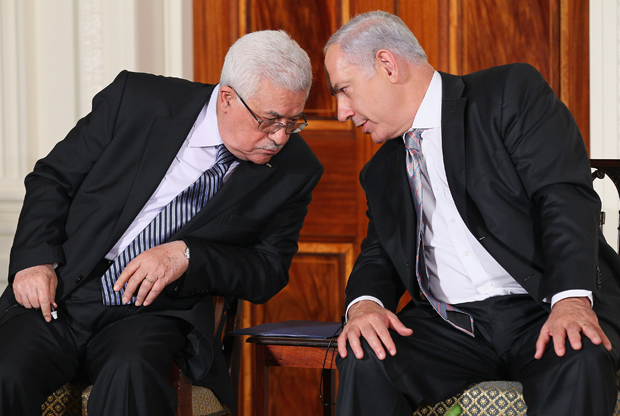
The ability of the Hilltop Youth to challenge the Israeli state with apparent impunity also affects Israel’s relationship with the Palestinian leadership in the West Bank. Increased settler violence enervates the political narrative espoused by Palestinian President Mahmoud Abbas that it is possible to negotiate diplomatically with Israel over an independent Palestine.
More and more, Palestinians believe that increased settler violence is indicative of an Israeli political leadership who are indifferent and openly hostile to their demands for a sovereign state and who encourage Jewish violence against Palestinians. This reinforces the cogency of the narrative espoused by groups like Hamas who argue that increased Israeli violence must be met with increased Palestinian resistance.
This has resulted in an increase in violence against Israelis in the West Bank perpetrated by Palestinians. For example, between October 2015 and October 2016, there was a raft of knife attacks committed by Palestinians that was known as the “Intifada of the Individuals.” These attacks were a manifestation of Palestinians’ frustration at the draconian Israeli occupation and increasingly emboldened Jewish ultra-nationalists operating with perceived impunity from Israel’s occupation forces.
In 2018, a U.N. report recorded 144 attacks carried out by Palestinians against Israeli settlers. The report also noted the correlation between Palestinian attacks and settler revenge attacks.
Overall, the upsurge in violence throughout the West Bank is a deeply worrying phenomenon with no easy solution.
From an Israeli government perspective, there is no political will to confront the issue, especially with an election looming and PM Netanyahu’s increasing reliance on religious-nationalist parties to remain in power. For the Palestinian leadership in the West Bank, this unwillingness significantly undermines their diplomatic narrative, making it problematic to rein in Palestinian retaliatory attacks.
Worryingly, this makes the prospects of peace between Palestinians and Israelis more remote than ever.
Disclaimer: The views and opinions expressed here are those of the author and do not necessarily reflect the editorial position of The Globe Post.



